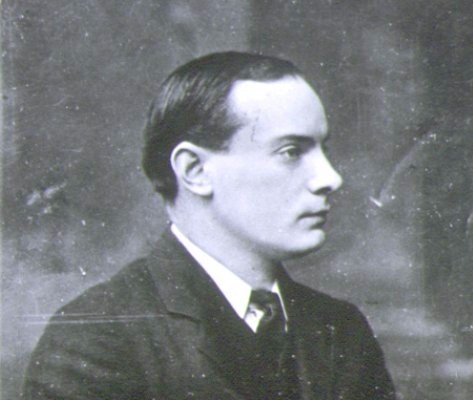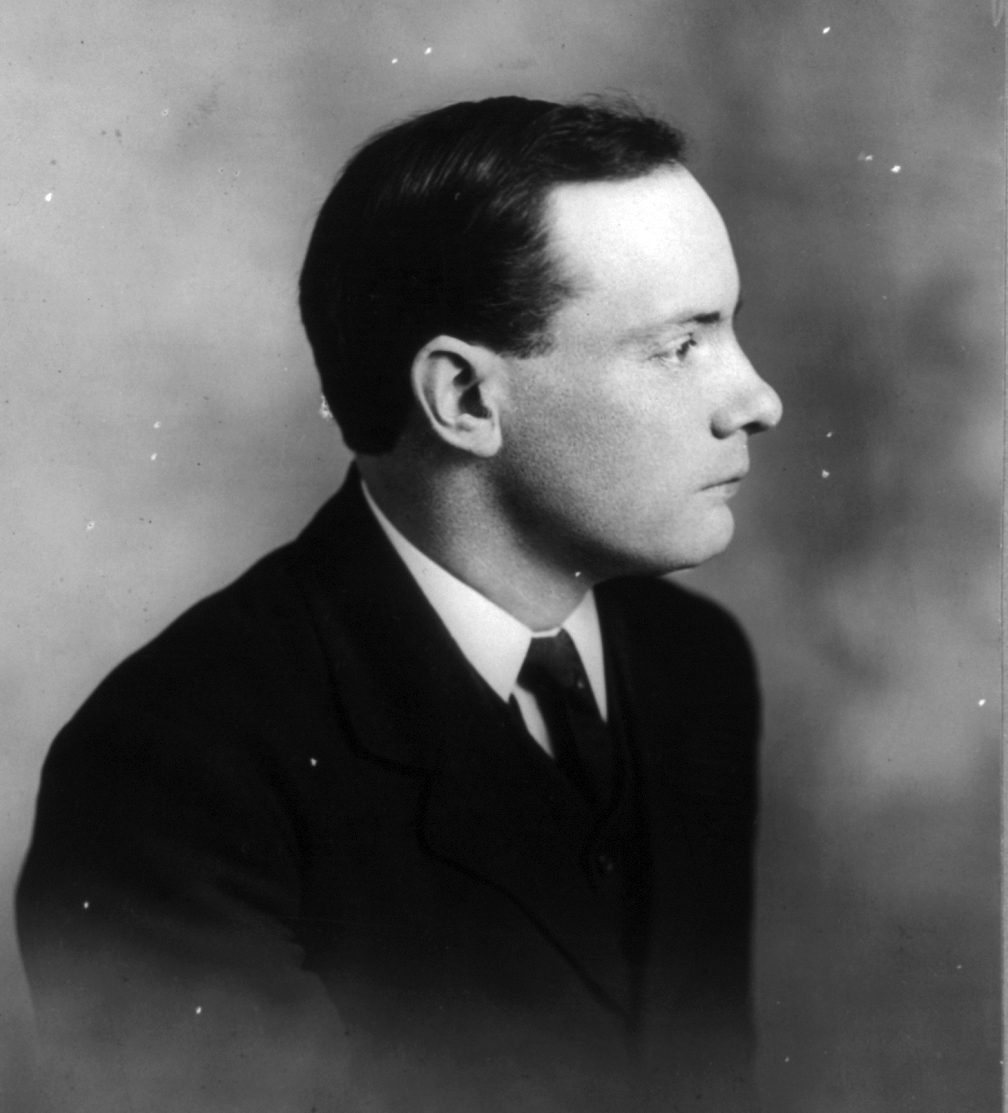Ireland Unfree Shall Never Be At Peace
Patrick Pearse (Pádraig Anraí Mac Piarais)
Historical Context
The timing and setting of this speech reveal as much about its purpose as the words themselves. When Jeremiah O'Donovan Rossa died in New York in June 1915, Irish revolutionary leaders saw an opportunity. Jeremiah was an old Fenian hero who had fought for Irish freedom decades earlier. Returning home for burial, this funeral could be more than a memorial, it could be a rallying point.
The Irish Republican Brotherhood carefully planned funeral tot his effect. They arranged for O'Donovan Rossa's body to be shipped back to Ireland and organized a massive public procession through Dublin to Glasnevin Cemetery. Thousands lined the streets, with volunteers in uniforms.
For the crucial graveside speech, they chose Patrick Pearse, knowing his gift with words could transform mourning into motivation. The funeral took place during World War I, when Britain's attention and military resources were focused elsewhere. Pearse and his fellow revolutionaries were already planning what would become the Easter Rising, just eight months away. This speech wasn't just about honoring the dead, it was about preparing the living for the struggle ahead.

The Speech
It has seemed right, before we turn away from this place in which we have laid the mortal remains of O'Donovan Rossa, that one among us should, in the name of all, speak the praise of that valiant man, and endeavour to formulate the thought and the hope that are in us as we stand around his grave. And if there is anything that makes it fitting that I, rather than some other, I rather than one of the grey-haired men who were young with him and shared in his labour and in his suffering, should speak here, it is perhaps that I may be taken as speaking on behalf of a new generation that has been re-baptised in the Fenian faith, and that has accepted the responsibility of carrying out the Fenian programme.
I propose to you then that, here by the grave of this unrepentant Fenian, we renew our baptismal vows; that, here by the grave of this unconquered and unconquerable man, we ask of God, each one for himself, such unshakable purpose, such high and gallant courage, such unbreakable strength of soul as belonged to O'Donovan Rossa.
Deliberately here we avow ourselves, as he avowed himself in the dock, Irishmen of one allegiance only. We of the Irish Volunteers, and you others who are associated with us in today's task and duty, are bound together and must stand together henceforth in brotherly union for the achievement of the freedom of Ireland. And we know only one definition of freedom: it is Tone's definition, it is Mitchel's definition, it is Rossa's definition. Let no man blaspheme the cause that the dead generations of Ireland served by giving it any other name and definition than their name and their definition.
We stand at Rossa's grave not in sadness but rather in exaltation of spirit that it has been given to us to come thus into so close a communion with that brave and splendid Gael. Splendid and holy causes are served by men who are themselves splendid and holy. O'Donovan Rossa was splendid in the proud manhood of him, splendid in the heroic grace of him, splendid in the Gaelic strength and clarity and truth of him. And all that splendour and pride and strength was compatible with a humility and a simplicity of devotion to Ireland, to all that was olden and beautiful and Gaelic in Ireland, the holiness and simplicity of patriotism of a Michael O'Clery or of an Eoghan O'Growney. The clear true eyes of this man almost alone in his day visioned Ireland as we of today would surely have her: not free merely, but Gaelic as well; not Gaelic merely, but free as well.
In a closer spiritual communion with him now than ever before or perhaps ever again, in a spiritual communion with those of his day, living and dead, who suffered with him in English prisons, in communion of spirit too with our own dear comrades who suffer in English prisons today, and speaking on their behalf as well as our own, we pledge to Ireland our love, and we pledge to English rule in Ireland our hate.
This is a place of peace, sacred to the dead, where men should speak with all charity and with all restraint; but I hold it a Christian thing, as O'Donovan Rossa held it, to hate evil, to hate untruth, to hate oppression, and, hating them, to strive to overthrow them. Our foes are strong and wise and wary; but, strong and wise and wary as they are, they cannot undo the miracles of God who ripens in the hearts of young men the seeds sown by the young men of a former generation. And the seeds sown by the young men of '65 and '67 are coming to their miraculous ripening today. Rulers and Defenders of Realms had need to be wary if they would guard against such processes. Life springs from death; and from the graves of patriot men and women spring living nations. The Defenders of this Realm have worked well in secret and in the open. They think that they have pacified Ireland. They think that they have purchased half of us and intimidated the other half. They think that they have foreseen everything, think that they have provided against everything; but the fools, the fools, the fools! — they have left us our Fenian dead, and, while Ireland holds these graves, Ireland unfree shall never be at peace.
Read the Full Speech
Key Quotes
"Ireland unfree shall never be at peace."
The famous closing line that became a rallying cry for Irish republicans
"We know only one definition of freedom: it is Tone's definition, it is Mitchel's definition, it is Rossa's definition."
Linking the current struggle to previous generations of Irish revolutionaries
"The fools, the fools, the fools! — they have left us our Fenian dead, and, while Ireland holds these graves, Ireland unfree shall never be at peace."
Pearse's powerful conclusion suggesting that martyrs would continue to inspire revolution
"Life springs from death; and from the graves of patriot men and women spring living nations."
A poetic expression of how sacrifice leads to national rebirth
"I propose to you then that, here by the grave of this unrepentant Fenian, we renew our baptismal vows; that, here by the grave of this unconquered and unconquerable man, we ask of God, each one for himself, such unshakable purpose, such high and gallant courage, such unbreakable strength of soul as belonged to O'Donovan Rossa."
Framing revolutionary commitment in religious terms
Analysis & Significance
Few speeches in Irish history have had the impact of Pearse's graveside oration. Delivered with strategic intent, the speech demonstrates Pearse's mastery of rhetoric and symbolism.
Pearse built persuasive power through deliberate techniques. His use of repetition created rhythmic cadence in phrases like "splendid in the proud manhood of him, splendid in the heroic grace of him," generating emotional resonance. He borrowed religious language, speaking of "baptismal vows" and "communion" with the dead. For his predominantly Irish Catholic audience, this framing elevated nationalism from political movement to a sacred duty.
The speech's structure reveals careful design. It begins with respectful remembrance, gradually builds momentum through assertions of shared commitment, then culminates in the declaration: "Ireland unfree shall never be at peace." This progression takes listeners on an emotional journey from commemoration to commitment.
What makes this speech particularly remarkable is how effectively it bridged past and future. Standing at the grave of an old revolutionary, Pearse connected previous generations' struggles to the current moment. On the surface, he eulogized a dead revolutionary, but his true purpose was igniting revolutionary spirit in the living.
Enduring Legacy
Pearse's oration marked a pivotal turning point in Irish nationalism. The constitutional approach championed by figures like Parnell and Redmond was being overtaken by those who believed freedom would only come through armed struggle. Pearse's words didn't just describe this shift—they helped create it. Within months, Ireland changed forever. The Easter Rising of 1916 erupted in Dublin streets, and though it failed militarily, the British response transformed public sentiment toward independence. Pearse himself was transformed from orator to martyr, and his graveside words suddenly seemed prophetic.
The final line, "Ireland unfree shall never be at peace," took on a life of its own. It appeared on walls and posters during the War of Independence. Later, during the Troubles in Northern Ireland, it was invoked by those who felt the work of independence remained unfinished. The phrase became both inspiration and challenge, interpreted and reinterpreted by each new generation. Each year, people gather at Glasnevin Cemetery to commemorate not just O'Donovan Rossa but the speech that helped change the course of Irish history.
The speech remains contentious. Some see in Pearse's words a dangerous glorification of violence and martyrdom. Others find a timeless expression of a people's right to determine their own future.
What's undeniable is that these words, spoken at a single funeral, helped shape a nation. They remind us that sometimes history turns not on grand military campaigns or political strategies, but on moments when someone finds exactly the right words at exactly the right time.

About the Speaker
Patrick Pearse was a man of many talents. Born in Dublin in 1879 to an English father and Irish mother, he grew up between two cultures. Although, ultimately he dedicated his life to Irish identity and independence. Before becoming a revolutionary, Pearse made his mark as an educator and champion of the Irish language, founding St. Enda's School where young Irish people could learn in both English and Irish, connecting with their cultural heritage.
When he delivered this famous graveside speech, Pearse was still relatively unknown outside nationalist circles. Few in the general public would have recognized his name or face. After the speech, however, he became much more well known.
View all speeches by Patrick Pearse